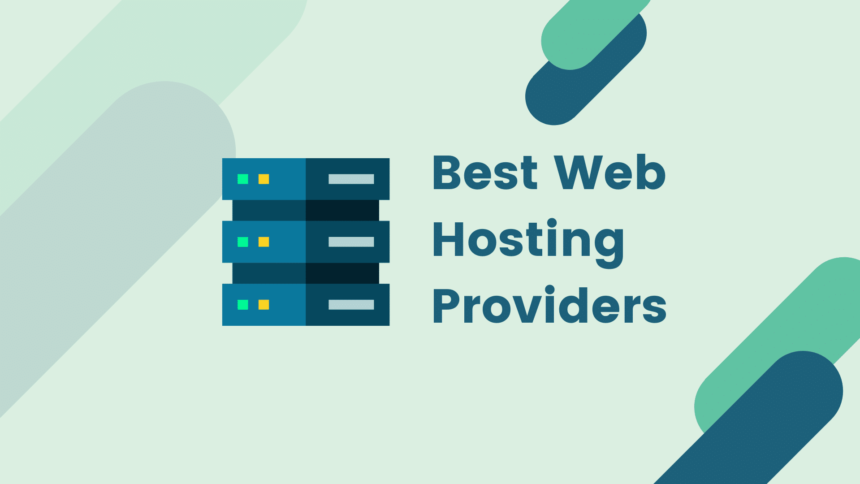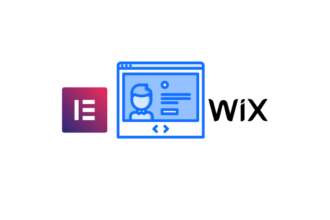Introduction
Running a business in Nigeria means your website needs to be fast, reliable, and supported by a hosting provider that gets local challenges. It’s not just about picking the cheapest option—reliability, local support, and scalability matter. With so many hosting providers out there, from global giants to local players, choosing the right one can feel overwhelming. This 2025 review highlights five top hosting providers for Nigerian businesses, evaluated for performance in West Africa, local support, pricing, and features. Let’s dive in and find a hosting partner you can trust.
- Introduction
- Section 1: What Nigerian Businesses Should Look for in a Hosting Provider
- Section 2: Top Website Hosting Providers for Nigerian Businesses
- 1) Hostinger — Best for WordPress Sites in Nigeria
- 2) QServers — Best Value Shared Hosting for Startups
- 3) HostAfrica — Best for E-commerce and Nigerian Payment Readiness
- 4) SiteGround — Best for Developers and Scalable Infrastructure
- 5) SmartWeb Nigeria — Local/Nigerian-Focused Hosting Partner
- Dont miss: Creating Interactive Website Features with No-Code Tools
- Section 3: How to Compare Hosting Plans for Your Nigerian Business
- Section 4: Practical Tips for Nigerian Businesses Choosing Hosting
- Section 5: Quick Recommendations by Business Type
- Section 6: How to Test a Hosting Provider
- Section 7: Final Verdict and At-a-Glance
- FAQ
- Conclusion
Section 1: What Nigerian Businesses Should Look for in a Hosting Provider
- Local relevance and support: 24/7 or extended-hours support with local contact options (phone, chat, or email) to minimize downtime.
- Performance for West Africa: Data centers in or near Nigeria, CDN options, and caching to reduce latency for users in Lagos, Abuja, and beyond.
- Pricing and value: Transparent pricing in Naira or USD, reasonable renewals, and clear limits on storage, bandwidth, and email accounts.
- Uptime guarantees and reliability: Aim for 99.9% uptime or better to keep your site accessible during peak traffic.
- Security and compliance: SSL certificates, malware scanning, daily backups, DDoS protection, and easy restore options.
- Scalability: Plans that allow upgrades to VPS, cloud, or dedicated hosting as your business grows.
- Local payment options: Support for Nigerian cards, bank transfers, or gateways like Paystack for seamless payments.
Section 2: Top Website Hosting Providers for Nigerian Businesses
Note: These providers are evaluated based on performance in Nigeria, local support, pricing, and features for growing businesses. Prices are approximate, based on 2025 data, and may vary by plan or promotions.
1) Hostinger — Best for WordPress Sites in Nigeria
- Why choose it: Affordable plans, fast global CDN with African edge nodes, and a user-friendly hPanel make it ideal for WordPress users. Hostinger’s Naira payment options and local support bridge the gap between global quality and Nigerian accessibility.
- Core features:
- Free domain on annual plans (e.g., .com.ng)
- Managed WordPress hosting with automatic updates and one-click installs
- Global CDN with low latency for Nigerian users (TTFB ~183ms)
- Daily backups and one-click restore
- 24/7 chat and email support with Nigerian time-zone coverage
- Plans start at ₦4,600/mo (3-year plan, ~$2.49/mo)
- Drawbacks: Renewal prices can increase significantly (e.g., ~₦9,900/mo); basic plans limit features like email accounts.
- Ideal for: Small to mid-sized Nigerian businesses, bloggers, or e-commerce sites using WordPress.
2) QServers — Best Value Shared Hosting for Startups
- Why choose it: A trusted Nigerian provider since 2004, QServers offers affordable plans with strong local support and reliable performance for startups and SMEs.
- Core features:
- SSD storage (10GB–50GB), unmetered bandwidth (fair use policy)
- Free SSL, daily backups, and malware scanning
- One-click CMS installs (WordPress, Joomla)
- 24/7 local support via phone, chat, and email
- Plans start at ₦1,500/mo for shared hosting
- Free .com.ng domain with annual plans
- Drawbacks: Limited global data centers may impact international visitors; fewer advanced features compared to global providers.
- Ideal for: Startups, local service providers, and small Nigerian e-commerce sites on a budget.
3) HostAfrica — Best for E-commerce and Nigerian Payment Readiness
- Why choose it: With recent acquisitions (e.g., WebManager, GO54), HostAfrica combines local expertise with robust infrastructure, ideal for e-commerce sites needing fast load times and secure transactions.
- Core features:
- PCI-compliant hosting and free SSL certificates
- LiteSpeed servers and CDN for fast product page loads
- Easy integrations with WooCommerce and Magento
- Local payment options (Naira, bank transfers)
- Plans start at ₦4,500/mo (20GB SSD, unlimited bandwidth)
- Daily backups and 24/7 support
- Drawbacks: Slightly pricier than local competitors; advanced features may require higher-tier plans.
- Ideal for: Nigerian retailers and service providers with online stores or transactional sites.
4) SiteGround — Best for Developers and Scalable Infrastructure
- Why choose it: Offers flexible VPS and cloud hosting with developer-friendly tools, fast performance, and scalability for growing businesses.
- Core features:
- Cloud hosting with scalable RAM/CPU (starting at 2GB RAM, 40GB SSD)
- SSH access, root control, and support for multiple programming languages
- Global data centers with African CDN nodes for low latency
- Automated daily backups and snapshot capabilities
- Plans start at ~₦15,000/mo ($8/mo) for cloud hosting
- 24/7 expert support via chat, phone, and tickets
- Drawbacks: Higher costs and setup complexity may challenge non-technical users.
- Ideal for: Medium to large Nigerian businesses, tech startups, and agencies needing robust, scalable hosting.
5) SmartWeb Nigeria — Local/Nigerian-Focused Hosting Partner
- Why choose it: A veteran Nigerian provider since 2004, SmartWeb offers affordable hosting with a focus on local support and performance optimized for Nigerian audiences.
- Core features:
- Local data center options for faster load times in Nigeria
- Naira-based pricing and local payment methods (e.g., bank transfers)
- SSD storage (10GB–50GB), free SSL, and daily backups
- 24/7 Nigerian-based support via phone and chat
- Plans start at ₦2,000/mo for shared hosting
- Drawbacks: Limited global CDN coverage may affect international traffic; verify performance for non-Nigerian visitors.
- Ideal for: Nigerian SMEs and startups prioritizing local support and cost-effective plans.
Dont miss: Creating Interactive Website Features with No-Code Tools
Section 3: How to Compare Hosting Plans for Your Nigerian Business
- Performance and latency: Check for data centers in Nigeria or nearby (e.g., South Africa) and CDN availability. Look for user reviews from Nigeria.
- Uptime commitments: Seek 99.9%+ uptime guarantees backed by SLAs; check independent reviews for historical uptime.
- Security and backups: Ensure automated daily backups, free SSL, and malware protection; confirm restore times.
- Support availability: Prioritize 24/7 support with local phone numbers or chat in Nigerian time zones.
- Pricing clarity: Compare initial vs. renewal rates (e.g., Hostinger’s ₦4,600/mo vs. ₦9,900/mo renewal) and check for hidden fees.
- Scalability options: Verify easy upgrades to VPS or cloud hosting for traffic surges.
- Email and collaboration tools: Confirm included email accounts, spam protection, and SMTP reliability for business communication.
Section 4: Practical Tips for Nigerian Businesses Choosing Hosting
- Define your goal: Are you targeting local customers in Nigeria, nationwide, or international audiences? This affects CDN and data center needs.
- Prioritize local support: Nigerian-based support can resolve issues faster, especially during local business hours.
- Focus on speed and mobile: With many Nigerians accessing sites via mobile networks, fast load times (e.g., <1.8s FCP) are critical.
- Estimate bandwidth/storage: Account for your content size (e.g., product images) and traffic to avoid overage fees.
- Use local payments: Providers like QServers and SmartWeb support Naira and local gateways, simplifying renewals.
- Plan for growth: Choose hosts with scalable plans to handle seasonal spikes or marketing campaigns without migrations.
Section 5: Quick Recommendations by Business Type
- Small local business with a basic site: QServers or SmartWeb Nigeria (affordable, local support)
- WordPress-centric site or blog: Hostinger (WordPress-optimized, cost-effective)
- E-commerce store with growing traffic: HostAfrica (e-commerce features) or Hostinger (WordPress-based stores)
- Tech startup or development team: SiteGround (VPS/cloud, developer tools)
- Businesses needing local support: SmartWeb Nigeria or QServers (Nigerian-based teams)
Section 6: How to Test a Hosting Provider
- Set up a staging site: Test a copy of your site to evaluate performance.
- Run latency tests: Use tools like Ping or GTmetrix from Lagos/Abuja to measure load times.
- Simulate traffic: Test how the host handles spikes (within plan limits).
- Check backups: Confirm ease of restoring backups and time required.
- Test support: Open tickets during Nigerian business hours to gauge response speed.
Section 7: Final Verdict and At-a-Glance
- For WordPress enthusiasts: Hostinger (affordable, WordPress-optimized)
- For startups on a budget: QServers (local, cost-effective)
- For e-commerce retailers: HostAfrica (secure, transaction-ready)
- For developers needing scalability: SiteGround (flexible, robust)
- For local support priority: SmartWeb Nigeria (Nigerian-focused, reliable)
FAQ
Q1: Do Nigerian hosting providers support international visitors?
A1: Yes, providers like Hostinger and HostAfrica use global CDNs to ensure decent speeds for international users. Verify CDN coverage for your target markets.
Q2: Is 99.9% uptime realistic in Nigeria?
A2: Absolutely, providers like QServers and SiteGround consistently hit 99.9%+ uptime. Check SLAs and third-party uptime reviews for confirmation.
Q3: Why are backups critical for Nigerian businesses?
A3: Backups protect against outages, cyberattacks, or errors. Providers like Hostinger and SmartWeb offer daily automated backups with easy restores.
Conclusion
Choosing a hosting provider in 2025 is a big decision for Nigerian businesses. Focus on reliability, local support, and scalability to ensure your website supports your growth. Whether you’re a startup in Lagos or an e-commerce store in Abuja, these providers offer tailored solutions to keep your site fast, secure, and accessible.
Image source: naijalog.com






